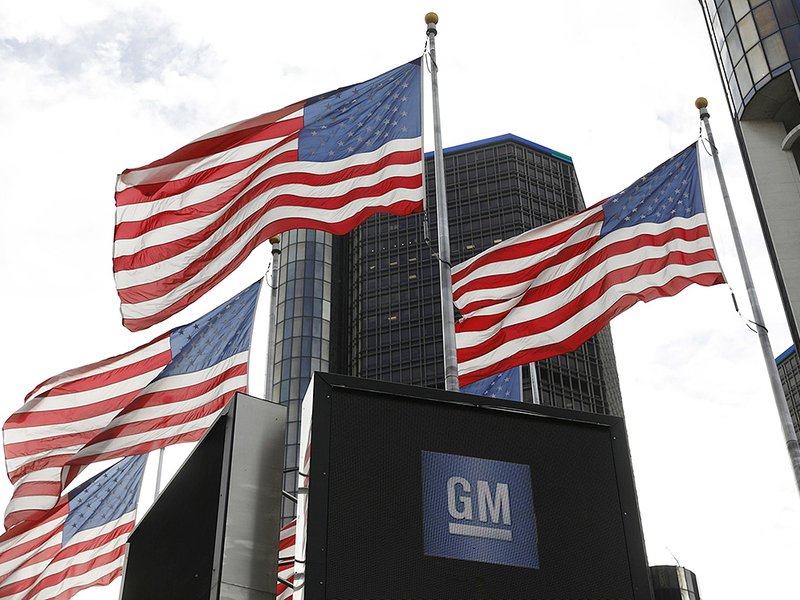
DETROIT — U.S. District Judge Paul Borman on Wednesday dismissed General Motors’ wide-ranging racketeering lawsuit against Fiat-Chrysler Automobiles which accuses FCA of coordinating a years-long bribery scheme with UAW leaders to gain an unfair labor-cost advantage.
Last month, Borman called the lawsuit a distraction for the companies and a “waste of time and resources for the years to come.”
GM said it strongly disagrees with the court order and will “pursue our legal remedies.”
“There is more than enough evidence from the guilty pleas of former FCA executives to conclude that the company engaged in racketeering, our complaint was timely and showed in detail how their multi-million dollar bribes caused direct harm to GM,” spokesman Jim Cain said in a statement. “The district court’s opinion is contrary to well-settled RICO case law and would let wrong-doers off the hook for the massive harm caused by their criminal conspiracy.”
FCA said in a statement: “We have said from the very outset that this was a meritless lawsuit. The dismissal of GM’s complaint with prejudice earlier today vindicates our position.”
Borman ruled that GM’s first causation theory, in which it alleged that FCA engaged in a pay-to-harm scheme “has some appeal, but it fails on closer look.”
GM cannot argue that it would have negotiated a better labor contract if not for FCA’s bribes to the UAW, Borman said.
GM’s second theory of causation is based on an “even-more-remote” injury, Borman said. GM alleged that FCA bribed the UAW to designate it as the lead company in the 2015 labor contract negotiations, which allowed FCA to negotiate a contract that was more expensive for GM than the automaker had planned.
Not enough proof
GM’s allegation does not prove a direct relationship between FCA’s conduct and GM’s injury, which is required under the Racketeer Influenced and Corrupt Organizations Act, Borman said.
Factors other than FCA’s goal to impose extensive labor costs on GM could also explain FCA’s motive to negotiate a contract that was expensive for the automaker but generous for Detroit 3 workers, Borman said. For example, he said, FCA’s UAW workforce had already rejected the first contract, which put pressure on FCA to negotiate a second proposal that would appeal to workers.
The UAW and FCA officials also knew that their labor negotiations and misuse of funds were already being investigated by the federal government.
“Both sides had incentives to prove to the government that they were engaging in good faith negotiations,” Borman said.
In the complaint, GM said that it was able to reduce the immediate cost impact of the contract by about $400 million, “which shows that the economic force of pattern bargaining was not so strong that GM was unable to deviate, at least to some degree” from the labor contract, said Borman.
The court also argued that even though some of GM’s labor costs may have been a result of FCA’s plan to weaken GM, it is too difficult to calculate the labor cost difference between the amount GM had to pay under the contract negotiated by FCA vs. the amount GM would have paid if it was the lead bargaining company.
“GM’s failure to plead sufficient facts showing that it was proximately harmed ‘by reason of’ violations means that it did not state a cognizable civil RICO claim,” the court ruled.
Appeals court actions
On June 23, Borman ordered GM CEO Mary Barra and FCA U.S. CEO Mike Manley to meet in person the following week to try to resolve the racketeering suit.
Without an agreement, the litigation would be contentious and would drag on for years, with hearings and depositions from the automakers, the UAW and third-party experts, Borman said.
“These legalities will not only divert and consume the attention of key GM and FCA executives from their day jobs — issues of vehicle production, sales, worker safety, rollouts, supplier issues, etc. — but also prevent them from fully providing their vision and leadership of this country’s most pressing social justice and health issues. I mean directly, not through committees that they may set up,” he said.
On Monday, the 6th U.S. Circuit Court of Appeals denied GM’s request to have a new judge handle the case, but said Borman abused his power when he ordered the Barra and Manley to meet.
The appeals court said Borman failed to consider other remedies and said his reasoning — that the lawsuit would distract the companies from dealing with the coronavirus pandemic and recent racial tensions across the country — was unrelated to the case at hand.